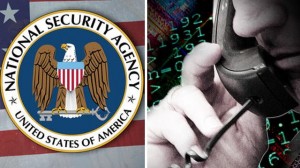Senate Passes House Bill Overhauling NSA Surveillance Program
< < Go Back
Chamber blocks 3 amendments to House-passed measure; bill [signed by] Obama.
A long-running congressional battle over privacy and surveillance ended Tuesday when the Senate voted to curb the collection of millions of Americans’ phone records, the first significant retrenchment of government spying powers since the 9/11 attacks.
The measure will reauthorize the provisions of the USA Patriot Act that lapsed Sunday at midnight, but it will phase out the National Security Agency’s bulk phone-records program over six months. The bill, passed by the Senate Tuesday in a 67-32 vote, reboots those provisions of the 2001 law but will shift storage of the phone records to telecommunications companies.
Supporters said the legislation marked a victory for civil liberties diminished by laws put in place in the wake of the September 2001 terror attacks. “Today the American people are now safe from the federal government’s collection of their personal data,” said Sen. Mike Lee of Utah, the bill’s chief GOP proponent in the Senate.
Already approved by the House, the USA Freedom Act [was immediately] signed by President Barack Obama …
The bill will require the NSA and Federal Bureau of Investigation to obtain phone records for most counterterror investigations and other probes on a case-by-case basis from telecommunications companies. This would end the nine-year-old practice underpinned by Section 215 of the Patriot Act, which allowed the NSA to hold the telephone records of millions of Americans, regardless of any person’s background or behavior. The bulk data collection didn’t include the content of the calls themselves.
The Central Intelligence Agency, the Justice Department and the White House all supported the curbs, a reflection of government officials’ shifting stance on surveillance since former NSA contractor Edward Snowden’s 2013 leaks about secretive data collection.
A bipartisan group of senators on Tuesday blocked three amendments supported by the Kentucky Republican and Senate Intelligence Committee Chairman Richard Burr (R., N.C.) to delay and impose new checks on the overhaul of the surveillance program.
With bulk data collection no longer permitted, the government will be forced to go to the Foreign Intelligence Surveillance Court with specific requests for customer data. Telecommunications industry officials have said they would have a little more work tracking down specific call data, but most of the additional burden falls on the government.
There have been other developments, such as technology companies’ reaching a settlement with the government that allowed them to disclose more about the national-security requests for business or personal information. And officials have said they quietly halted the practice of spying on foreign leaders of friendly allies, though many allies remain skeptical about whether surveillance has halted.
More From The Wall Street Journal (subscription required):




